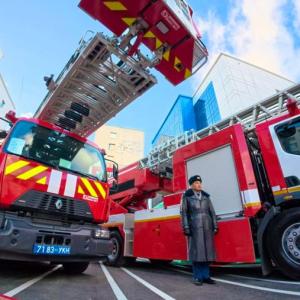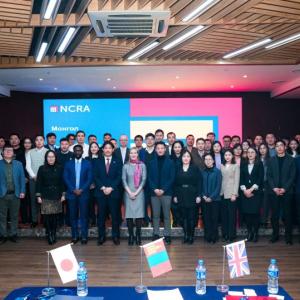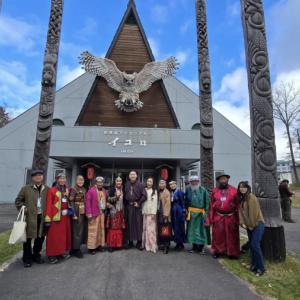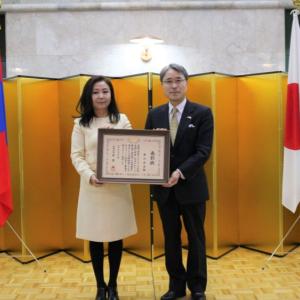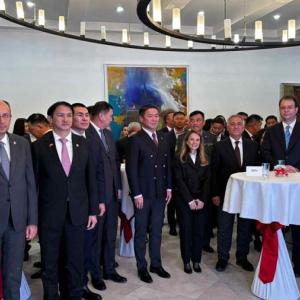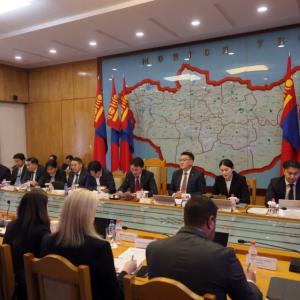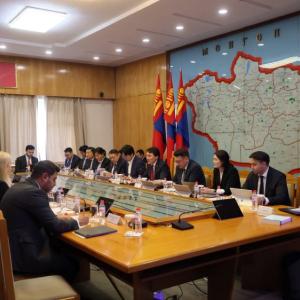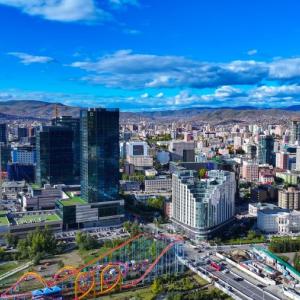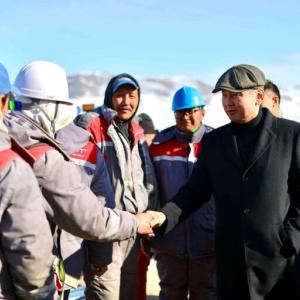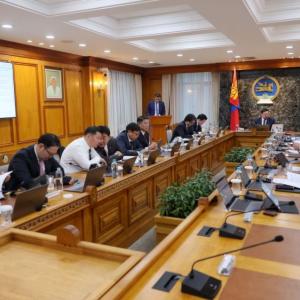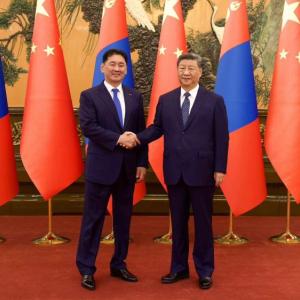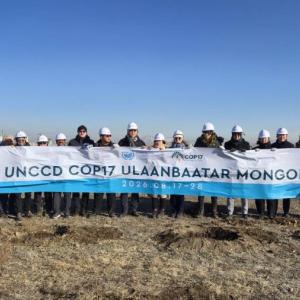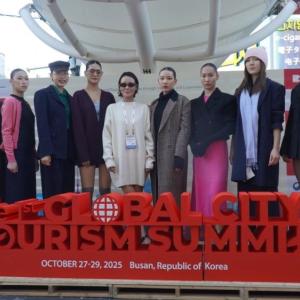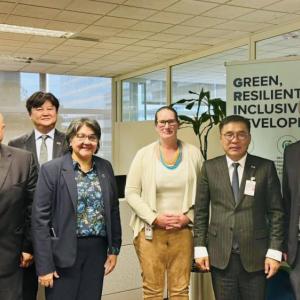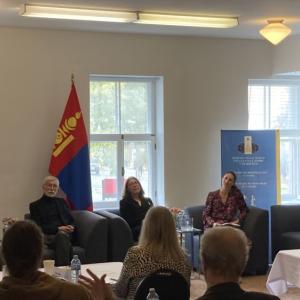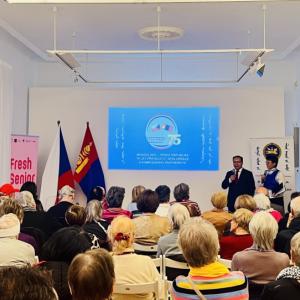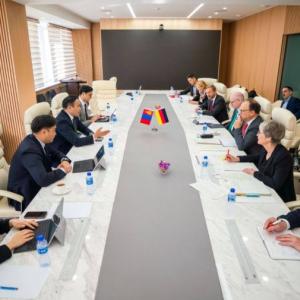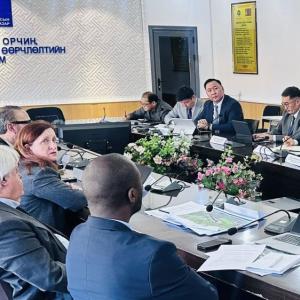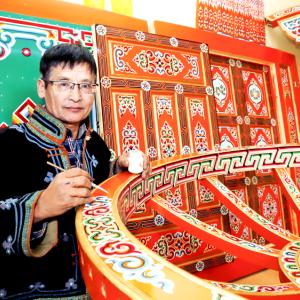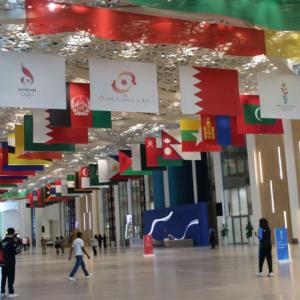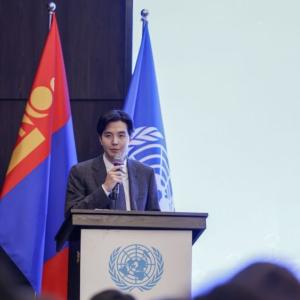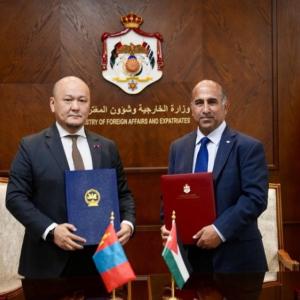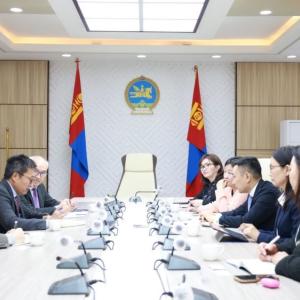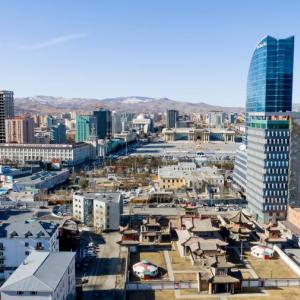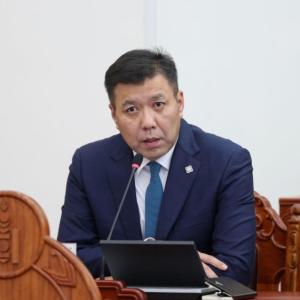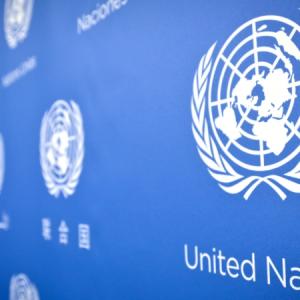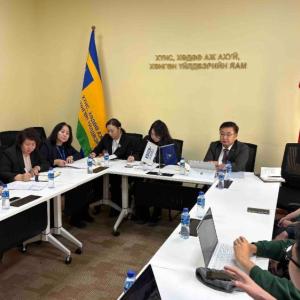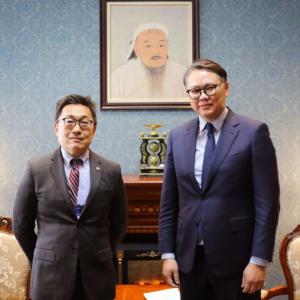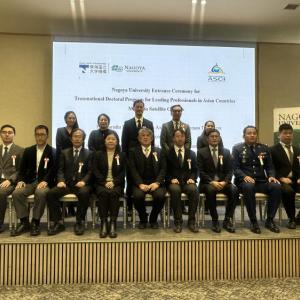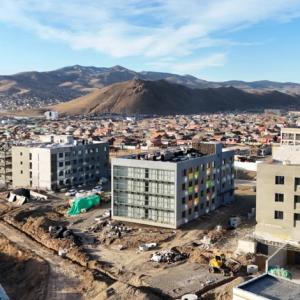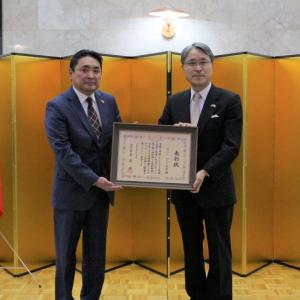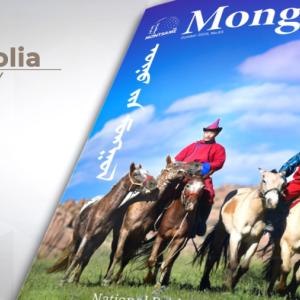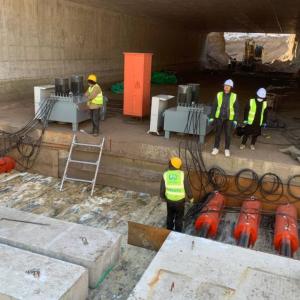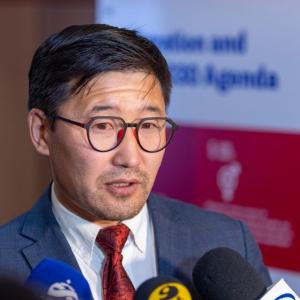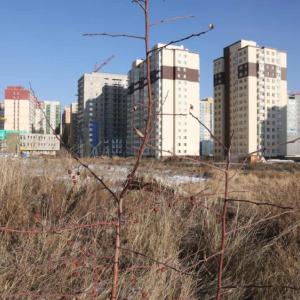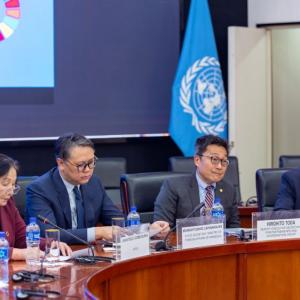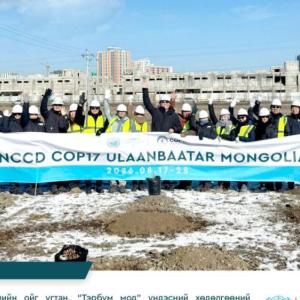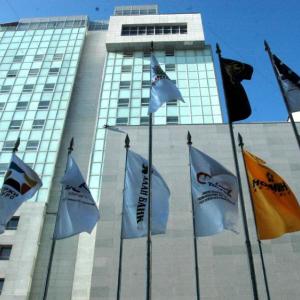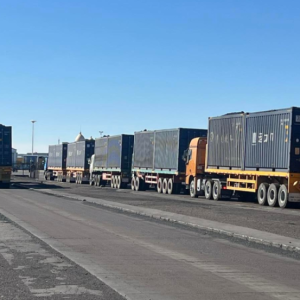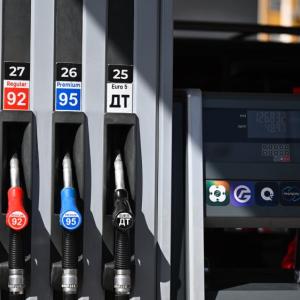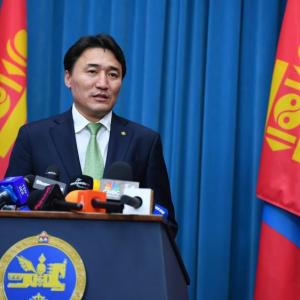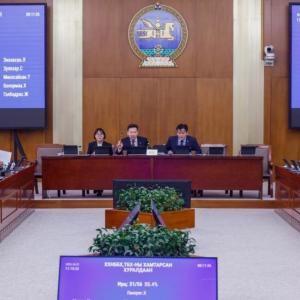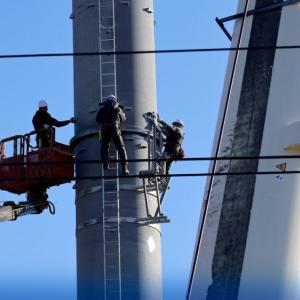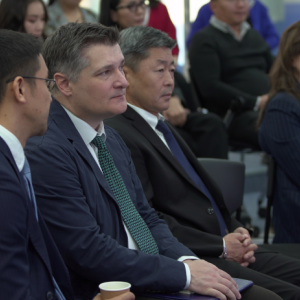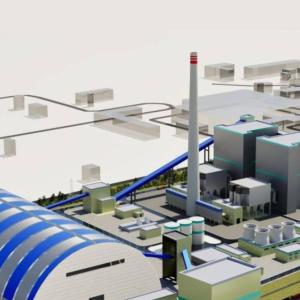Impressions and Insights of the Distinguished Guests of the Sustainability Dialogue 2025
Politics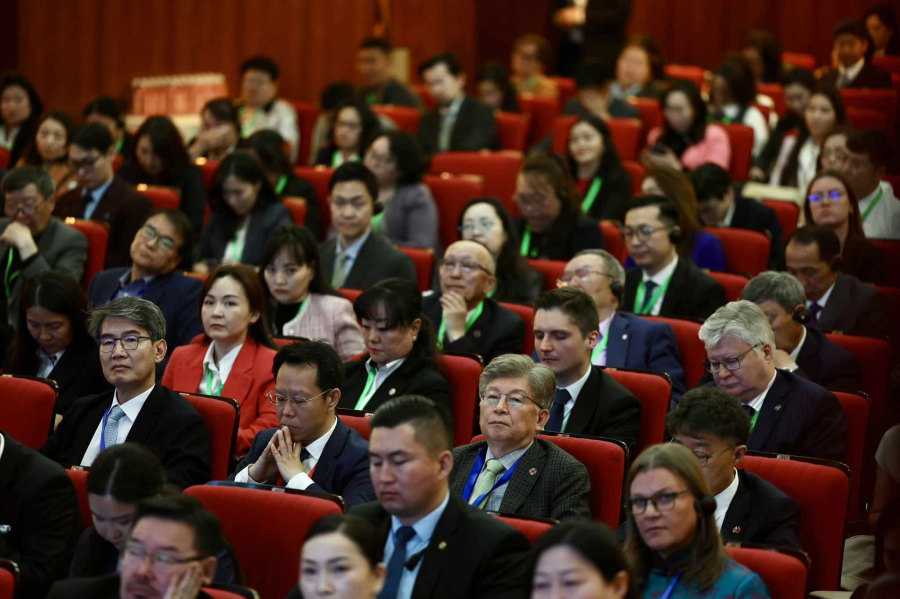
Ulaanbaatar, June 6, 2025 /MONTSAME/. Under the auspices of President of Mongolia Khurelsukh Ukhnaa, the “Sustainability Dialogue 2025 - Climate Action: Billions of Trees” International Forum is taking place in Ulaanbaatar City of Mongolia on June 6-7, 2025.
The Forum serves as a platform to align Mongolia’s climate-related policies and measures, attract investment, strengthen cooperation among stakeholders, and support innovative initiatives.
During the Forum, MONTSAME Mongolian National News Agency spoke with several distinguished delegates.
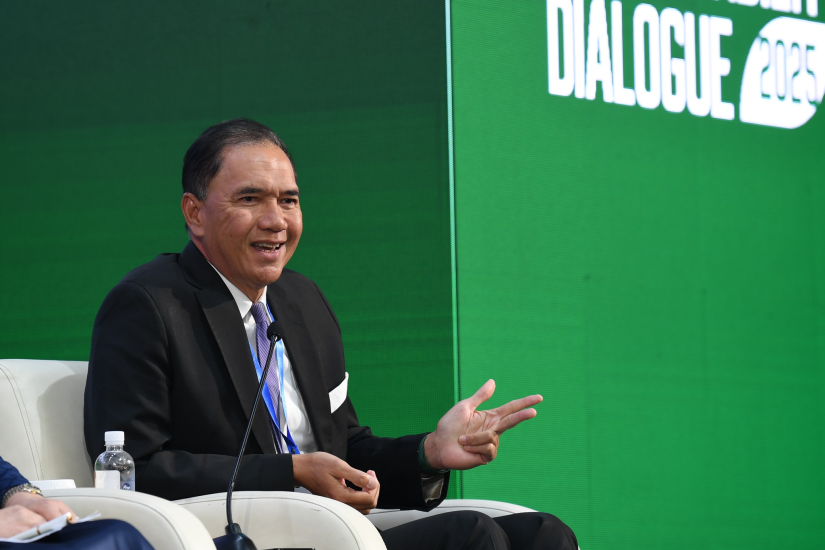
Gita Wirjawan, Former Minister of Trade of Indonesia and Visiting Scholar at the Precourt Institute for Energy of Doerr School of Sustainability, Stanford University: "This is my first visit to Ulaanbaatar, and I feel truly fortunate. The past few days have been eye-opening, refreshing, and, above all, I have been deeply impressed by the hospitality and the natural beauty. The Sustainability Dialogue being hosted in Ulaanbaatar is an important initiative — one that should be continued and promoted in other parts of the developing world, or what I often refer to as the Global South.
Mongolia’s narrative resonates with my background in Southeast Asia, and also with our friends in Africa and other regions that need to ascend the value chain and rise within the global geopolitical order. To do so, it is essential to pursue development that is modern, renewable, and environmentally sustainable. The estimated investment needed — around USD 10 billion — is relatively modest compared to the requirements of other developing nations.
The initiative led by your President is admirable. As I mentioned earlier, it is not impossible. It is within reach. For example, Indonesia succeeded in planting four billion trees over eight years, thanks to the active involvement of not only the government but also academia, entrepreneurs, and civil society. If Mongolia can ensure such broad-based participation, there is no reason it cannot achieve similar results. The fact that over 80 million trees have already been planted is a significant start, and reaching one billion trees is entirely achievable within our lifetime. As I said earlier, two key areas deserve focus. First, it is essential to educate the population to better translate uncertainty into measurable risk. Uncertainty refers to unknown unknowns, whereas risk is a known unknown. If we can quantify risks, we can price them, and when something has a price, funding will follow. Without that clarity, capital will not flow.
Second, we must understand the intersection between the cost of technology and Mongolia’s purchasing power. At present, the two diverge, but it is possible to predict how long it will take to narrow or close that gap. If Mongolia can identify institutions willing to bear that risk, the transition can happen on a predictable timeline. By addressing these two areas — the ability to manage translational risk and aligning technological affordability with national capacity — Mongolia can find a viable solution. And I believe this solution can be achieved well before 2050 or 2060. Mongolia's timeline to reach carbon neutrality is much shorter than that of many other countries."

Ksenia Brockman, Head of Green Financial Systems, Central Asia, Caucasus, and Türkiye, Climate Strategy and Delivery, EBRD: "For the EBRD, this Forum presents a valuable opportunity to engage with key policymakers, private sector investors, Mongolian enterprises, and global partners. These interactions bring not only capital and knowledge but also innovative technologies to support Mongolia’s transition to net-zero and climate-resilient economic practices.
As a multilateral development bank, our role is threefold. First, we work alongside policymakers to develop policies and reforms that enable climate and green investments. Second, we mobilize and channel concessional finance from global climate funds and donor institutions to support investments in Mongolia. These funds are essential to lowering the financial barriers, especially those related to affordability.
And third — and perhaps most importantly — we are a bank that drives change through investments. For instance, last year was a record year for the EBRD in Mongolia. We invested in 18 projects totaling USD 270 million, with 57 percent of that directed toward climate mitigation and adaptation. This represents the largest volume of finance the EBRD has delivered to Mongolia in the past decade.
We are committed to deepening our cooperation with local partners and attracting more international private sector investors. One promising direction is the development of country and sector-specific investment platforms. These platforms pool resources from various partners into investment packages that will facilitate Mongolia’s green economic transition."
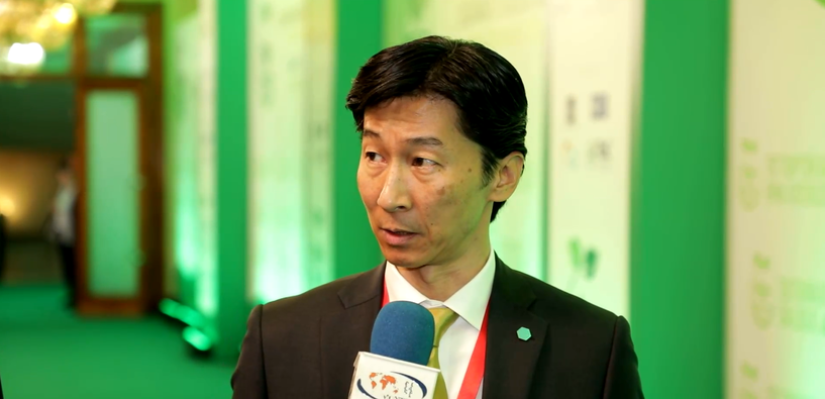
Dave H. Kim, Governance Lead and Special Advisor to the President of the Assembly and Chair of the Council of the Global Green Growth Institute: "I believe Mongolia possesses the most essential factor for attracting climate finance and investment for sustainable development, which is a political will. The President of Mongolia has demonstrated clear leadership and determination. That ambition is vital. In some Western countries, political will has faded, making it extremely difficult for institutions like GGGI and international financial organizations to engage effectively.
In contrast, Mongolia’s political will provides a strong foundation. It makes climate finance and collaboration far more feasible. Moreover, the necessary frameworks are in place, and expertise in the country is growing rapidly. This opens the door for meaningful participation from organizations and institutions.
This is not my first time participating in the Sustainability Dialogue — previously known as the Trans-Altai Dialogue — and I believe it continues to improve each year. Notably, this year’s increased involvement from the private sector is a positive development, as the private sector holds far greater resources for climate finance than the public sector. Public-private partnerships (PPPs) unlock tremendous potential, and I believe what we are witnessing here is truly remarkable.
I hope the President continues to champion this climate agenda. It will benefit not only Mongolia but also the region and the broader global community. Mongolia is setting an example — leading the way among developing countries — and will undoubtedly be stronger for it."
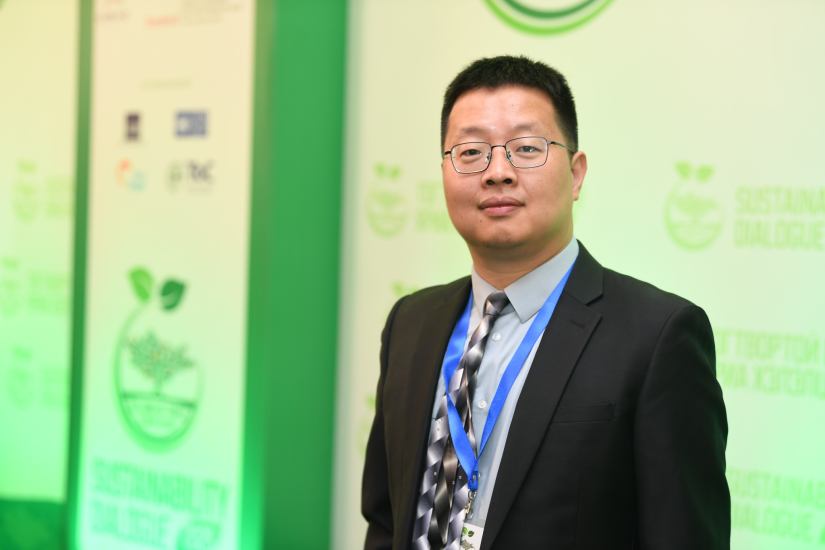
Wang Feng, Group Leader of Development Strategy and Policy, Institute of Ecological Conservation and Restoration of the Chinese Academy of Forestry: "It is a pleasure to attend the “Sustainability Dialogue 2025 – Climate Action: Billions of Trees” International Forum in Ulaanbaatar. This Forum serves as an important platform for countries in Northeast Asia — including Mongolia, the PRC, South Korea, Japan, and Russia — to exchange knowledge and strategies for addressing desertification and climate change.
Northern part of the PRC and southern part of Mongolia share arid climates and desert landscapes. Therefore, anti-desertification efforts in the Mongolia-China border region are essential. These include planting cold-resistant crops and trees, as well as maximizing the use of native plant species.
Mongolia’s “Billions of Trees” National Movement is a commendable initiative that will significantly contribute to reforestation. In my view, the climate of both southern and northern parts of Mongolia is suitable for successful tree planting efforts."
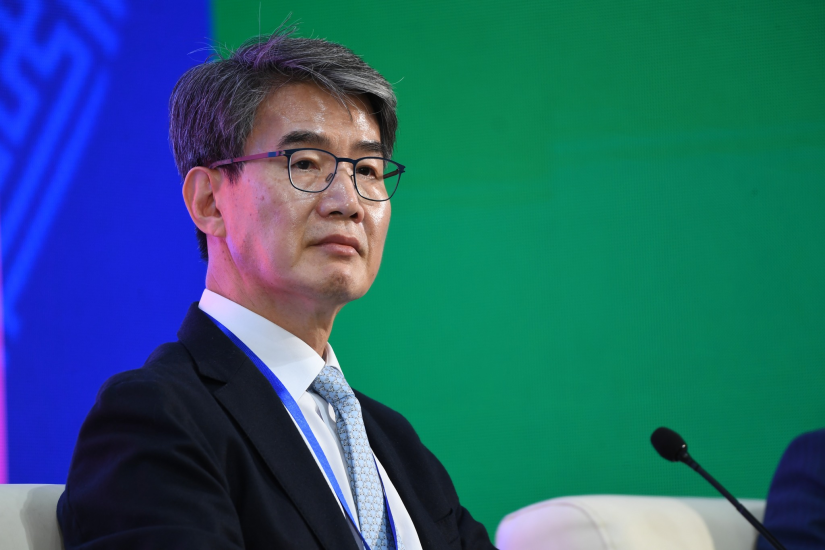
Jhungsoo Park, Executive Vice President for Research and External Affairs and Professor in the Department of Public Administration, Ewha Womans University: “Mongolia's devotion to sustainability and deforestation is quite impressive. However, I would like to emphasize the implementation. Everybody talks about the vision and, for some, the agenda, but we need action now. So I would like to focus on the implementation plan - how we can accomplish it in the near future, such as by 2030 or 2050. Our goal is very concrete, so we need to act now. I want to emphasize action plans and roadmaps to accomplish our goal.
Particularly, I would like to focus on SOEs - the State-Owned Enterprises. Actually, Mongolia has a lot of SOEs doing government activities to make this dream come true, such as sustainable and resilient development. So I would like to present in my presentation how we can make the SOEs more accountable and resilient for the Sustainable Development Goals.
This event, the Sustainability Dialogue 2025, is quite a good occasion to come together and align our opinions toward the same goal. But action and implementation are quite important these days.
Our goal for the Sustainability Dialogue 2025 is quite relevant and very productive. I hope this event can expand the action and implementation plan to fight against deforestation and desertification. I hope this occasion will become a momentum to collect the will of the Mongol people to make it real.”
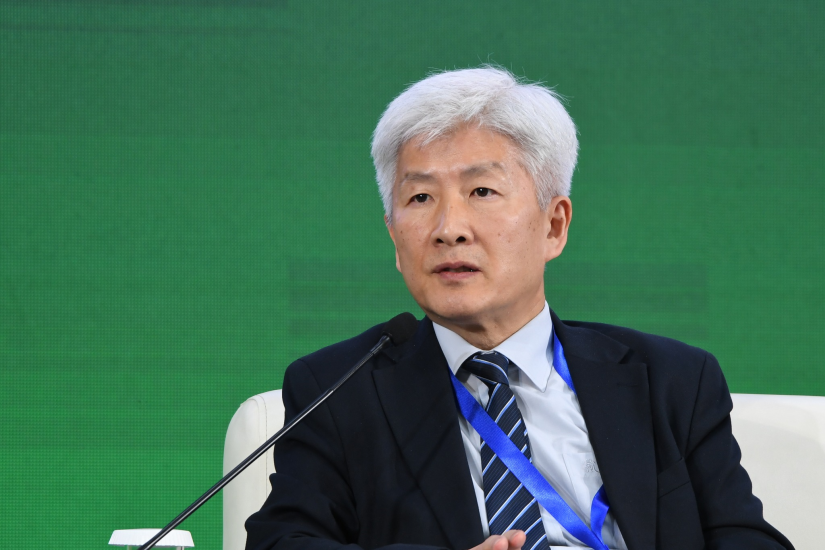
Tae Yong Jung, Professor of Sustainable Development, Graduate School of International Studies, Yonsei University: “Well, my first impression is amazing. I think your country is such a big country. Your concern and interest in this climate change issue or environmental impact - I think we cannot compare your country to other countries. Your country is amazing.
I think the public awareness on this issue and your leadership, for example, this Sustainability Dialogue - so I am very much impressed that Mongolia is one of the leading countries dealing with this issue.
The climate challenge is very broad, but considering your country’s situation, it is very appropriate and very target-oriented. The objectives this year - especially “Let’s Plant Trees,” “Let Our Country Make Green,” - which means Mongolia is one of the vulnerable countries to this climate change impact, and the shortage of water, and so on.
Your country and leadership recognize what the root cause of that issue is, and try to find a practical solution, which is simple but very difficult - that is, planting trees. I think that’s why you came up with this topic, “Billions of Trees,” and I think this is great and perfect.
For such a long time, the Mongols lived harmoniously with nature. The climate change and other environmental challenges are not really responsibility of single nation. This is a global responsibility.
Instead of relying on global efforts, Mongolia is saying, “Let’s Do It By Myself.” That is very important and very impressive to me, and I hope I can deliver this message to my home country, South Korea.”
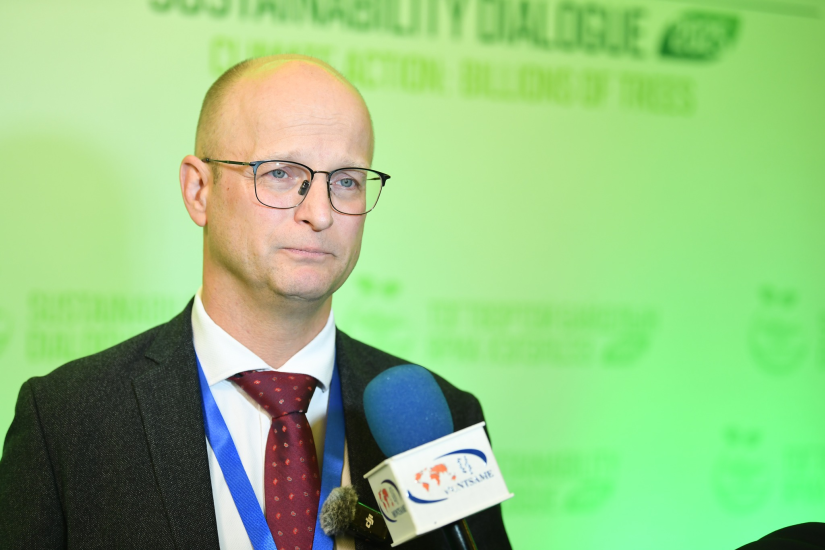
Alex Heikens, Senior Consultant of Climate, Environment, and Development: "This is an incredibly important effort. Like many other countries, Mongolia is already experiencing the serious impacts of climate change, such as droughts and dzuds. It is encouraging to see that the Government of Mongolia, the public, and even the private sector are increasingly stepping up to take action. Efforts are being made to mitigate the effects of climate change, including planting more trees and capturing carbon. Hopefully, these actions will help reduce the impacts and improve the livelihoods of the people.
What I hope to achieve, particularly in the session I will be facilitating on technical cooperation, is to gather valuable examples from around the world. These examples can guide us in adaptation strategies and in fostering collaboration between academia and the private sector. By sharing practical experiences, we can strengthen partnerships, increase cooperation, and deliver better and faster results."
 Ulaanbaatar
Ulaanbaatar








